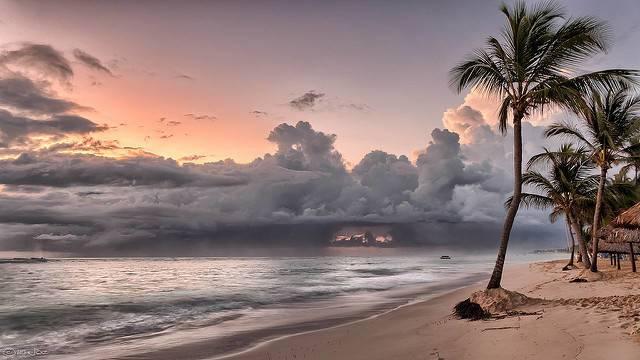
The United Nations World Tourism Organization (WTO) insists that tourism and sustainable development do not have to be mutually exclusive. For the sake of the planet, that had better be true – especially since estimates suggest 1.8 billion people could be taking international trips by 2030, a 50 percent increase from last year.
Here in Jamaica, where the UNWTO has wrapped up its Conference on Jobs and Inclusive Growth, a quick scan of the all-inclusive resorts that line the highway along the country’s north shore do not appear to be a hotbed of responsible and inclusive growth. The massive gates that greet shuttles arriving at these resorts hardly scream “inclusive.” Once visitors arrive inside, the amounts of food and trash these resorts generate raise questions about whether tourism can truly become the sustainable industry its leaders say it could be.
In fact, George Washington University’s International Institute of Tourism Studies (IITS) will soon release a report showing where the Caribbean region needs a heavy lift over the next few years. The IITS’s assessment will show that some of the largest risks countries here face include climate change adaptation, monitoring tourism’s collective footprint – not to mention the struggle of gaining the buy-in of local residents who are watching tourism impinge on their way of life.
And going back to those all-inclusive resorts, the ITTS has concluded that improving local recycling and waste management systems should be the Caribbean’s top priority through the end of this decade. Developing sustainability standards in the first place, along with ensuring that tourism has minimal impact on local demand and supply linkages, also should be on the tourism industry’s radar.
Hence the fundamental question arises yet again: For an industry that caters to people who often do not want to behave the same way abroad as they do at home, can the tourism sector really drive responsible and inclusive growth?
Fundación Grupo Puntacana, the philanthropic arm of the eponymous company that was the driver of one of the most sought-after destinations in the Caribbean, claims it serves as a model of how the public and private sectors can allow tourism to thrive while mitigating any environmental and social impacts in local communities. The catch is that all stakeholders, including government agencies, private companies and nonprofits, must be involved in order to ensure this booming industry can become a force for good.
In 1969, around the time Group Puntacana identified this remote fishing village as an area ripe for tourist potential, the entire Dominican Republic had 1,500 hotel rooms. Today, Punta Cana has approximately 50,000 rooms and welcomes 6.4 million passengers a year. As the town developed and more Dominicans moved to the eastern side of the country to seek work, strains on local resources emerged. According to the foundation’s Jake Kheel, the public sector’s lack of engagement was one problem as there was little planning and oversight. Waste management systems, for example, were unreliable and local communities often lacked safe drinking water.
“But the good news was that our biggest opportunity was the power of the private sector,” Kheel told an audience at this week’s UNWTO conference, “And the biggest lessons learned was that companies can have a positive impact.”
Kheel continued to explain that Grupo Puntacana worked with local officials to strengthen the region’s environmental, social and economic equity. Overfishing had become a huge problem, to the point at which many fisherman had a difficult time finding work. For over 10 years, the company helped retrain some of them so they could find alternative work such operating boats for tourist or even helping to build local coral gardens – the latter of which helped to rebuild the shore’s coral reefs. On land, the foundation launched programs that helped turn an area hardly known for agriculture into one now known for small-scale farms that use locally produced compost to help cultivate ingredients used in Punta Cana’s restaurants.
On the social side, Kheel said the foundation has built two schools that now educate over 1,000 students. Local clinics that the foundation co-manages provide vital health services.
And when it comes to infrastructure, Grupo Puntacana says it is developing a zero-waste program while a wastewater treatment facility built in 2009 helps conserve that precious resource.
Kheel noted that what he often finds rewarding about Punta Cana’s sustainability programs is that other resort regions are learning from this model of private-public partnership – and for a good reason. “This has been integral for our business,” said Kheel, “and sustainability is the DNA of how we operate.”
Image credit: Joe DeSousa/Flickr

Leon Kaye has written for 3p since 2010 and become executive editor in 2018. His previous work includes writing for the Guardian as well as other online and print publications. In addition, he's worked in sales executive roles within technology and financial research companies, as well as for a public relations firm, for which he consulted with one of the globe’s leading sustainability initiatives. Currently living in Central California, he’s traveled to 70-plus countries and has lived and worked in South Korea, the United Arab Emirates and Uruguay.
Leon’s an alum of Fresno State, the University of Maryland, Baltimore County and the University of Southern California's Marshall Business School. He enjoys traveling abroad as well as exploring California’s Central Coast and the Sierra Nevadas.














